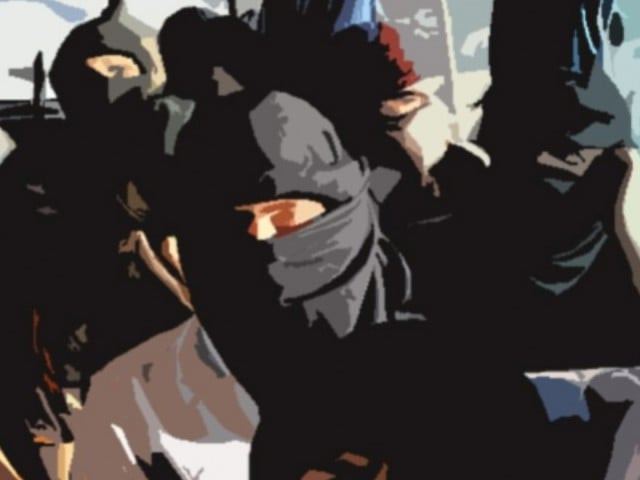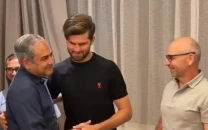Taliban commentary raises hope for peace talks
Analysis posted on group's website suggests four points to making the peace process successful

PHOTO: AFP
Senior Afghan Taliban leaders and representatives of the government in Kabul sat face-to-face for the first time in 14 years in Pakistan-brokered talks in Murree on July 7. Another round is planned in mid-August, according to Afghan leaders.
Taliban supremo Mullah Omar’s approval of the talks in his “Eid” message and the group’s weekly analysis on their official website could be seen as positive indications that the rare reconciliation process could make progress. However, the process still faces serious challenges from hardliners within the Taliban and elements of the Afghan government.
Read: Mullah Omar endorses ‘political endeavours and peaceful pathways’
Some former Taliban leaders and a few members of Taliban’s Qatar office who are not in favour of Pakistan’s role in the political negotiations could try to derail the process which has yet to gain momentum.
Taliban’s analysis this week has only focused on negotiations, however, it does not directly mention the Murree talks as the Taliban leadership has not yet officially commented on the peace process.
In the commentary, ‘How to achieve sustainable peace in the country?,’ the Taliban do not reject peace talks and give four suggestions on making the peace process successful.
Read: Afghan peace process: Ghani welcomes Mullah Omar’s endorsement
“Commitment and sincerity are the foremost elements for the peace process. A peace process which is also an Islamic obligation should not be used as a tool for deception, cunning and accusation of the opposite side,” said the Taliban analysis posted on their official website.
“Peace requires deep thoughts and discussions. A minor mistake in peace process could bring in enormous problems to our nation,” the analysis, which be seen as a soft approach towards the recently launched process, read.
“Peace requires serious moves based on realities otherwise it will deteriorate the peace process and pave the way for prolongation of war. Therefore, all the steps should be taken very carefully,” the Taliban said in their advice to their opponents.
Read: Pakistan helped secure Taliban talks, but Afghan mistrust lingers
However, the Taliban analysis warns the Kabul government not to use talks as a media tool. It further urges the government to remove hurdles in the way of peace and establish an atmosphere of confidence and trust.
“An important point in a peace process is the realisation of the sentiments of opposite side. Peace should not be dubbed as surrender. Those who desire peace should not use it as an instrument of propaganda,” the Taliban commentary added.
The Taliban have suggested the Kabul administration to take trust building measures.
Read: Afghan reconciliation: Mullah Omar's aide likely to join peace talks
The High Peace Council’s adviser on international affairs, Esmail Qasemyar, has urged the Taliban to announce a temporary ceasefire to hold the second round of the talks in a suitable and appropriate environment, according to the Afghan media.



















COMMENTS
Comments are moderated and generally will be posted if they are on-topic and not abusive.
For more information, please see our Comments FAQ